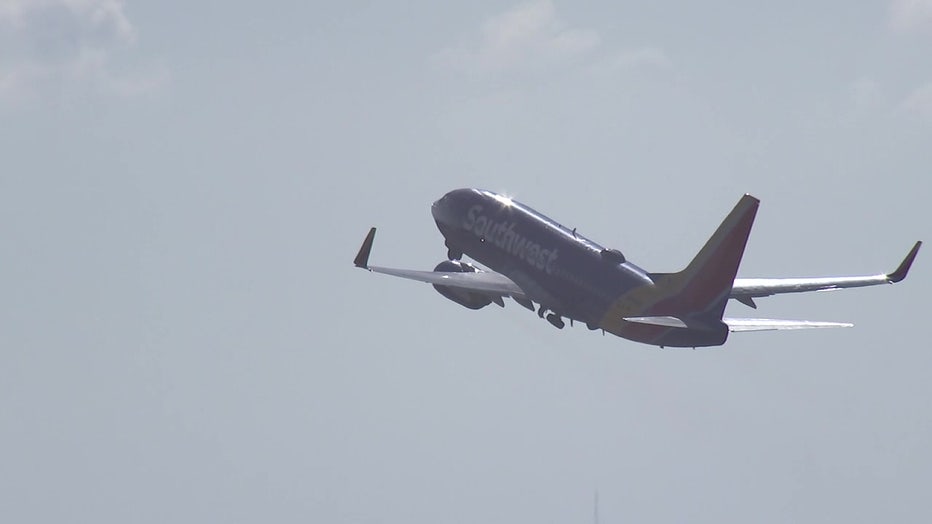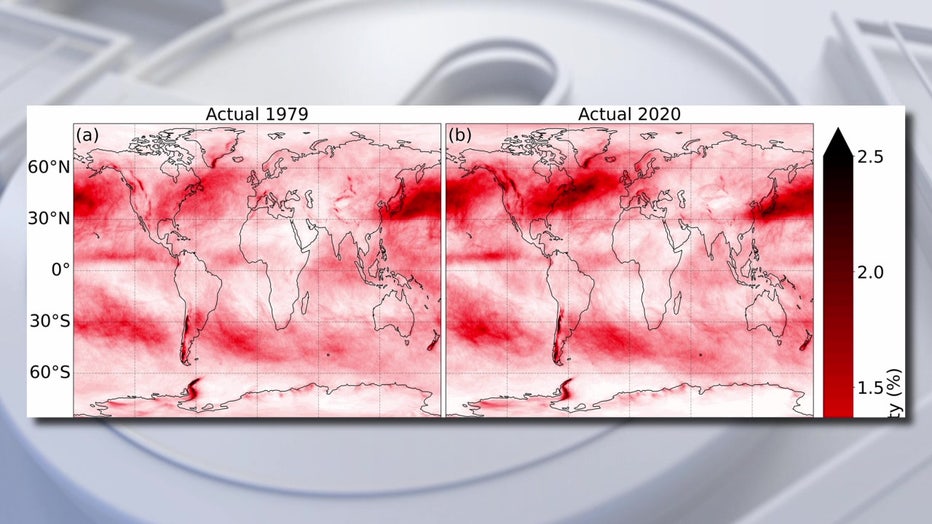Scientist says climate change is causing stronger turbulence

Severe turbulence has increased since 1979
One scientist says the seeming increase in turbulence may be because of a warming globe. Warmer air increases the intensity of jet streams.
ST. PETERSBURG, Fla. - According to one scientist, the cause of a seeming uptick in severe turbulence air travelers are experiencing may be a result of a warming globe.
The scientist also says more turbulent trouble may be on the way.
There was no warning for those on an Allegiant flight headed to St. Petersburg last Wednesday, when turbulence hit.
"We hit a major turbulence which was petrifying and [the flight attendant] was literally like The Matrix," said passenger Lisa Spriggs. "[We] watched her go up in the air and just land straight down."

Climate change could be the reason passengers are experiencing more turbulence according to one scientist in the UK.
Two passengers and two crew members were injured.
In March, turbulence injured seven on a Lufthansa flight from Texas. In December, 36 were hurt on a Hawaiian Airlines flight from Phoenix.
The Federal Aviation Administration data said 17 were seriously hurt on flights in 2022, the most since 2011.
RELATED: 7 passengers given medical help after Hawaiian Airlines plane hits severe turbulence
"So the warmer parts of the planet, the tropics are warming quickly at flat cruising altitudes," said University of Reading Professor Paul Williams.
Since 1979, Williams said severe turbulence in clear skies has increased by 55 percent as the planet has warmed. Hotter air is pushing up and colliding with the jet stream.

The air is hotter now compared to 1979.
"Of course, some flights will be completely clear of turbulence," explained Williams. "And then you take a flight that you're in turbulence for two hours, but an average figure might be 10 minutes. We can see that average doubling or tripling."
While it is exceedingly rare for turbulence to cause a disaster, it already costs the industry, and thus passengers, at least $200 million per year in plane maintenance.
Stronger turbulence will make it more difficult for flight attendants to do their jobs and more uncomfortable in general.
READ: Earth sees hottest day on record for third straight day
"Certainly changing the temperatures and changing the winds as well," said Williams. "And it's the winds that generate turbulence. So the link is really not as far-fetched as some people might think."
It's the last thing passengers on the flight into St. Pete want to hear.
"At the time we were terrified, praying for the lord to land the flight safely and everybody is OK," said Spriggs.
The FAA, the National Transportation Safety Board (NTSB) and Allegiant are all investigating the incident that occurred last week on the flight that had 185 people on board.
The FAA has not yet compiled its injury data for 2023.

